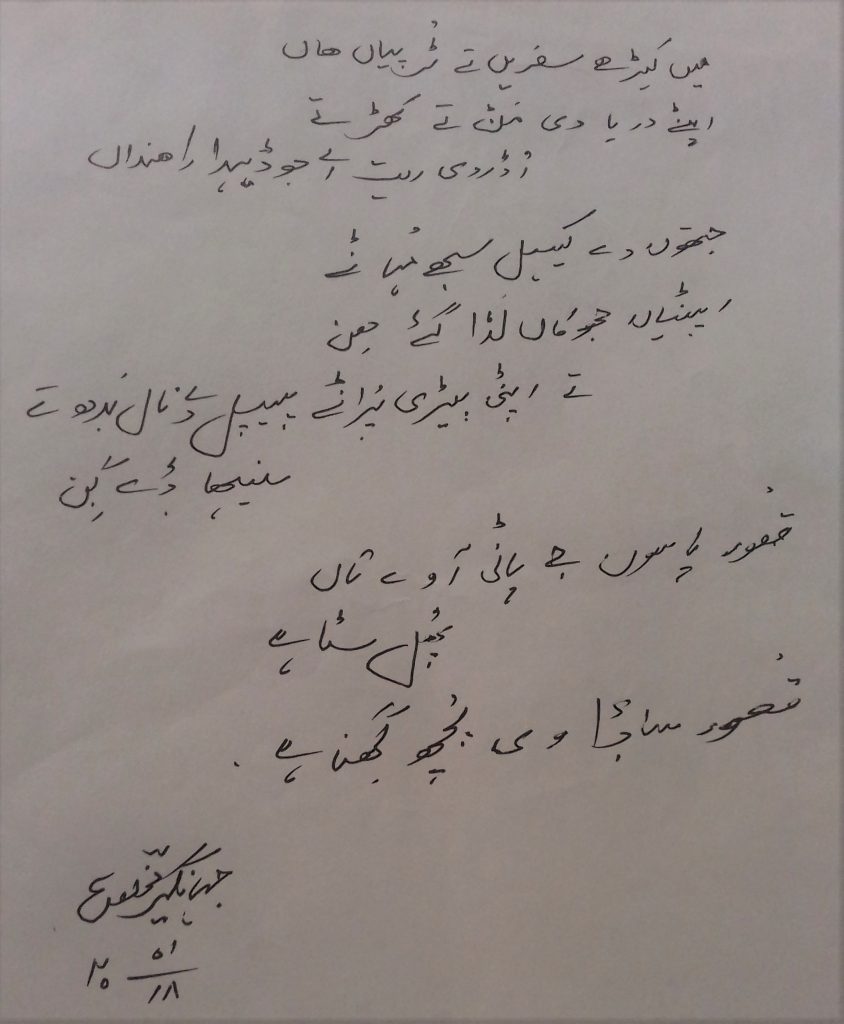
Translation
I am on a strange journey,
While standing on the bank of my River, I
Went through the spectacle of restless sand!
New landscape is there to witness,
Descendants of river race, river-dwellers
Have shifted their abode,
Anchored their boat to the old Peepal tree,
Left their message for onlookers;
If you ever receive a wandering stream
From the city of Kasur,
Welcome that with flowers, and
Do ask why it deserted our land
What fault did lie there with us?
This poem by Jahangir Mukhlis introduces us to a strange journey the poet goes through after witnessing sand instead of water between the banks of his river Sutlej. The disappearing of water has resulted into migration of river-dwellers and boatmen. Still, there is hope and message from the people who left the area for the posterity that how they need to welcome the water, if it ever enters into Pakistan from India at city of Kasur.
The poem captures the story of the slowly dying river and the pains and sufferings of riverine community. The aesthetic quality of the poem, and the sadness it carries with itself, may qualify this poem into a ‘poetic elegy’ of slowly dying river. Poem is simple in structure, yet complex and broad at meaning level-as it is personal, introspective, and anthropological at the same time.
Jahagir Mukhlis, the poet, creates a poetic world, a world of strange spectacle, a world filled with hope and melancholy, a world where sand replaces the water, a life without the dwellings, a boat without boatmen and anchored to the old Peepal tree. He suggests that this lonely boat is a message for the onlookers and wanderers.
Poet is worried about the demise of the river and the associated ecology, when he happens to see wandering sand all-around instead of water between the banks of river, and witnesses the increasing migration of river-dwellers, Keehal and Mohanay, two oldest descendents of river-dwellers. Now, the river has turned into an empty spectacle of sand- the opposite of what it symbolizes in real.
Poem ends at an emotional note. Poet gives a clear message by employing the double-meaning of the word Kasur, which both stands for ‘fault’ and ‘bordering city of Central Punjab’ from where river Sutlej enters into Pakistan territory from India. The spectacle of boat-anchored-to-the-Peepal tree informs the readers that boatmen and river-dwellers have left a message for the posterity: if they ever find a wandering stream entering into the city of Kasur from India, they should welcome that with flowers, and they should also ask why the river had left them at first place and stopped watering them.